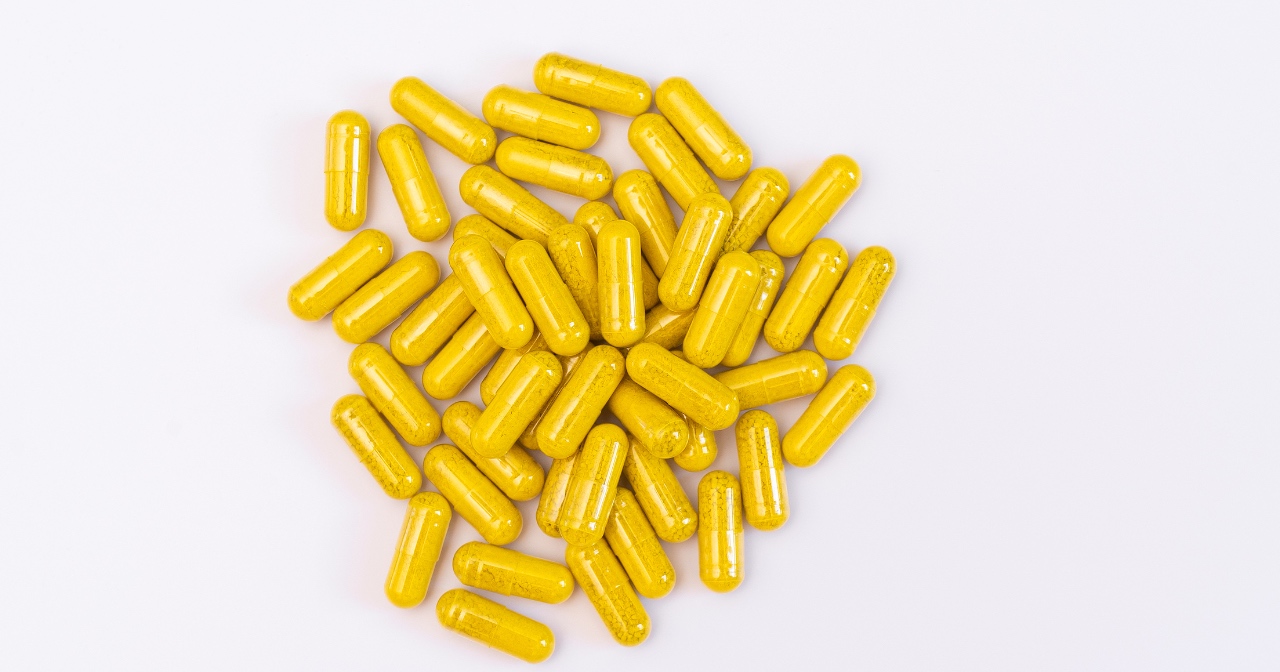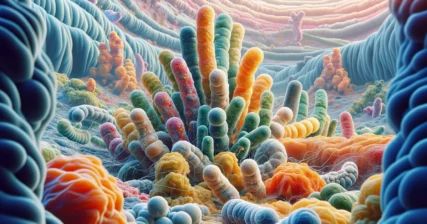Listen on: Apple Podcasts | Spotify
Berberine belongs to a small group of natural products that have not only been used for thousands of years, but also are supported by significant amounts of research. If you’re not using it to support your health, you could seriously be missing out.
The first mention of a berberine-containing compound for medical use dates back to 200 A.D. Chinese medicine doctors have used it for treating neurological and digestive dysfunction for thousands of years.
You can extract berberine from goldenseal, yellow root, Amur cork tree, Chinese goldthread, prickly poppy, and Californian poppy.
Berberine capsules are bright yellow and taken at usual doses of 500 mg, up to three times per day. It has a strong safety record.
Like curcumin, it acts on the body through multiple pathways, including its effect on AMP-activated protein kinase (AMPK). AMPK regulates metabolism in multiple organs as well as in your muscle tissue.
As an aside, I’ve taken 1000 mg at bedtime consistently for the past couple of years.

Feel Better Fast. Guaranteed.
Energy+, EDGE, and MentaBiotics make up the Happy Juice supplement stack, with ingredients clinically proven to:
- decrease anxiousness scores by 55%
- decrease irritability scores by 60%
- decrease fatigue by 64%
- decrease anger 54%
- decrease tension by 45%
- decrease confusion by 43%
- decrease overall distress by 49%
- increase good bacteria by 70%
- decrease negative mood by 105%
- increase positive mood by 211%
Cardiovascular Health
To emphasize the impact berberine has on heart health, check out the following quote:
Berberine has an antiarrhythmic effect, improves ejection fraction and enhances the function of the left ventricle and general physical capacity in congestive heart failure. Berberine decreases blood pressure by reducing cholesterol via several mechanisms, e.g., it stimulates the capture of cholesterol in serum by liver, stimulates the disposal of LDL-C from blood, reduces the absorption of cholesterol in bowels, enhances cholesterol excretion in excrements and stimulates liver exchange of cholesterol and the formation of bile acid.
Och A, et al.
With just this one health benefit alone, you have to wonder why more doctors don’t talk about berberine.
Research shows it improves the heart’s performance while improving cholesterol levels and lowering blood pressure and triglycerides. That’s pretty impressive, coming from a natural substance.
Healthy Blood Sugar Levels
Chronically elevated blood sugar leads to insulin resistance and type II diabetes. It may also cause premature aging, cognitive decline, and cancer.
More than half of our adult population has insulin resistance, so to use a recently overused term, insulin resistance could be considered an epidemic.
Following a good strength training program combined with a high-protein, low-carb or ketogenic diet is the most effective way to restore insulin sensitivity. Using berberine could speed up the process, though.
Research shows berberine is as effective as Metformin in restoring insulin sensitivity and normalizing blood sugar levels. Studies show it provides benefits on its own, as well as when combined with chromium picolinate, inositol, curcumin, and banaba.
Women with Polycystic Ovary Syndrome (PCOS) are often insulin resistant as well. At a dose of 500 mg per day, berberine supplementation not only improved insulin sensitivity and reduced elevated androgen levels in women with PCOS, it also improved pregnancy rates.
Body Composition
Berberine suppresses adipogenesis and lipogenesis, or the growth of fat cells.
Combined with its effect in lowering blood sugar, and thereby limiting insulin secretion, berberine may be a good alternative therapy for obesity, or for simply maintaining a healthy body fat level.
Of course, if you’re serious about improving your body composition, you’ll need to follow a good workout program and eat a healthy, high-protein diet as well. You can’t just rely on a supplement like berberine.
Cognitive Function
Most adults know someone with Alzheimer’s Disease or some form of dementia. Seeing someone literally lose their mind is both sad and scary. If you know the feeling, and are serious about avoiding cognitive decline, consider using berberine along with other healthy diet and lifestyle choices.
Berberine also inhibits the brain’s reward center after using drugs like cocaine, morphine, and alcohol, and enhances production of brain-derived neurotrophic factor (BDNF), which stimulates brain cell production and may reduce symptoms of depression.
Cancer Support
Berberine interacts with cancer through many mechanisms. It induces apoptosis, or programmed cell death, may slow progression of some cancers, and supports normal inflammation levels, which can help enhance cancer therapies. That said, research does not show that berberine alone is a cancer therapy, but that it may augment other existing treatments.
Obviously, it would be crucial to consult with your doctor about berberine if you do have cancer.
Summary
To summarize, I’ll quote another published paper:
Berberine has multiple therapeutic actions, including antioxidant, anti‐inflammatory, antitumour, antimicrobial, hepatoprotective, hypolipidemic, and hypoglycemic actions.
Fan J, et al.
If this sounds like something you’d benefit from, talk to your healthcare practitioner about how to weave it into your nutrition plan.
References
Cicero, Arrigo F. G., et al. “Berberine and Monacolin Effects on the Cardiovascular Risk Profile of Women with Oestroprogestin-Induced Hypercholesterolemia.” High Blood Pressure & Cardiovascular Prevention: The Official Journal of the Italian Society of Hypertension, vol. 21, no. 3, Sept. 2014, pp. 221–26. PubMed, doi:10.1007/s40292-014-0052-5.
Li, Chao, et al. “Berberine Mitigates High Glucose-Induced Podocyte Apoptosis by Modulating Autophagy via the MTOR/P70S6K/4EBP1 Pathway.” Life Sciences, vol. 243, Feb. 2020, p. 117277. PubMed, doi:10.1016/j.lfs.2020.117277.
Och, Anna, et al. “Biological Activity of Berberine—A Summary Update.” Toxins, vol. 12, no. 11, Nov. 2020, p. 713. PubMed Central, doi:10.3390/toxins12110713.
Rondanelli, M., et al. “Polycystic Ovary Syndrome Management: A Review of the Possible Amazing Role of Berberine.” Archives of Gynecology and Obstetrics, vol. 301, no. 1, 2020, pp. 53–60. PubMed Central, doi:10.1007/s00404-020-05450-4.
Wang, Ye, et al. “The Anti-Cancer Mechanisms of Berberine: A Review.” Cancer Management and Research, vol. 12, Jan. 2020, pp. 695–702. PubMed Central, doi:10.2147/CMAR.S242329.
Xie, Liangzhen, et al. “The Effect of Berberine on Reproduction and Metabolism in Women with Polycystic Ovary Syndrome: A Systematic Review and Meta-Analysis of Randomized Control Trials.” Evidence-Based Complementary and Alternative Medicine: ECAM, vol. 2019, 2019, p. 7918631. PubMed, doi:10.1155/2019/7918631.



